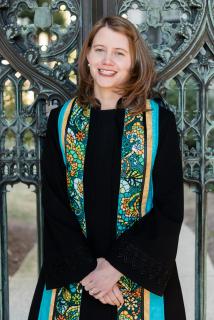Creating Community Online
Part of A Guide to Pastoral Care and Connection in a Time of Physical Distancing
By Jordinn Nelson Long


Community, including intimate, deep, and spiritually supportive versions thereof, can be created and sustained in online spaces. Zoom works great for covenant groups and there are things you can do in a Zoom you couldn’t in one shared physical location. Think about this in planning.
For example, I led one session where we thought about space and spaciousness, and we took five minutes to literally go move through the space we inhabit, and then come back and share what we noticed.
Ritual can and should happen as part of spiritual deepening on Zoom, and sometimes it requires a little adaptation, and sometimes it requires a lot. Get used to allowing a bit of extra time to really think through what you are going to invite participants to do-it will become clear quickly where adaptations are needed.
In ritual and also in general- people still inhabit a tangible world even if we are connecting in a virtual space. Think of ways to use that and help people connect sensorially. I have had participants do some “homework” to prep, including moving through their neighborhood or yard to collect three stones, bringing buttons, beads, pennies, or other small items to use to mark sharing, pausing to literally use crayon on paper to create a quick sketch, etc.
For pastoral care in writing, don’t feel like you have to use words in the same way that you would when talking. It took me awhile to arrive at the sanity-saving realization that when people write long and heart-wrenching e-mails, it’s ok to respond, paragraph by paragraph, with an affirmation or a witness or a question, and then an overall reassurance or invitation at the end. You do not need, and it is probably not even particularly helpful to try, to go line for line or length for length in that instance.
Text, Facebook message, and interacting in Facebook groups are all venues for pastoral support, leadership development and coaching, encouragement, and knowing more deeply about one another’s lives.
And finally, a general thing about cultivating online spaces: as in all things moderation is key. What I mean here is that if your online space is going to be healthy, healing, and covenantal, it can’t be a free-for-all. People can’t cause harm and not clean up after themselves. Communities can’t stay stuck at a least common denominator place because that’s easier than doing the work to learn and grow together. I recommend having a team of leaders, chosen from among those who are able to stay in covenant when things are tense, and to respond appropriately when things are challenging. That team of leaders is going to themselves need support so that they have the bandwidth to support others. It’s part of the job of building community.